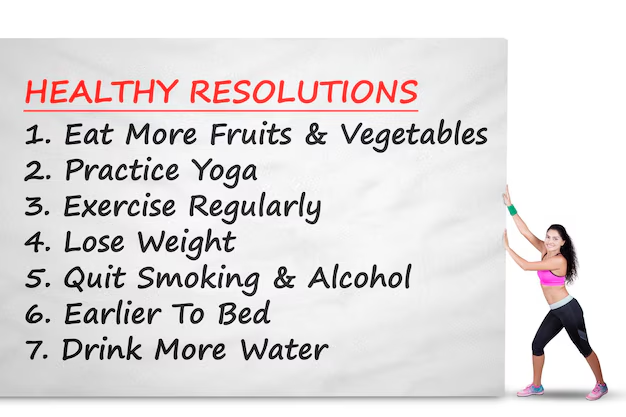
Living your best life means more than just achieving physical health—it involves nurturing both your body and mind. A balanced lifestyle is essential for overall well-being, and taking care of your health in a holistic way can lead to more energy, improved mood, and a greater sense of fulfillment. In this blog, we’ll explore practical health tips for maintaining a balanced body and mind, helping you feel your best every day.
1. Prioritize Consistent Physical Activity
Physical health is the foundation of living your best life. Regular exercise not only boosts your energy and fitness but also has profound benefits for your mental and emotional well-being. Exercise releases endorphins—natural chemicals that improve mood and reduce stress.
How to Get Started:
- Choose Activities You Enjoy: The best way to stay active is to engage in activities that make you feel good. Whether it’s jogging, yoga, dancing, or swimming, doing something you love makes exercise feel less like a chore.
- Find a Routine That Works for You: Aim for at least 150 minutes of moderate-intensity exercise per week. Break it down into manageable sessions, such as 30 minutes a day, five days a week. This makes it easier to integrate exercise into your busy life.
- Include Strength and Flexibility: In addition to cardio, include strength training and flexibility exercises. These help build muscle, improve posture, and increase flexibility, contributing to long-term physical health.
Tip: Don’t forget to listen to your body. If you’re feeling tired or sore, rest. Recovery is just as important as the workout itself.
2. Fuel Your Body with Nutritious Foods
What you eat plays a huge role in how you feel. A balanced diet provides the nutrients needed for your body to function properly and supports mental clarity and emotional stability. Eating a variety of whole foods helps prevent chronic diseases, boosts immunity, and supports healthy aging.
Healthy Eating Tips:
- Eat the Rainbow: Fill your plate with colorful fruits and vegetables. Each color represents different antioxidants, vitamins, and minerals essential for overall health.
- Choose Whole Grains: Opt for whole grains like brown rice, quinoa, oats, and whole wheat over refined grains. These provide fiber, which is important for digestive health and weight management.
- Incorporate Lean Proteins: Protein is essential for muscle repair, immune function, and energy. Include lean protein sources such as chicken, fish, beans, and tofu in your meals.
- Limit Processed Foods and Added Sugars: Processed foods and excess sugar can lead to weight gain, inflammation, and an increased risk of chronic diseases. Try to minimize consumption and focus on whole, nutrient-dense foods.
Hydration is also crucial. Drink plenty of water throughout the day to stay hydrated, support digestion, and maintain healthy skin.
3. Prioritize Sleep for Rejuvenation
Quality sleep is one of the most important factors in maintaining both physical and mental health. When you sleep, your body repairs itself, your brain processes information, and your mood stabilizes. Without enough rest, you can experience fatigue, difficulty concentrating, and an increased risk of chronic illnesses.
How to Improve Sleep Quality:
- Stick to a Sleep Schedule: Go to bed and wake up at the same time each day, even on weekends. Consistency helps regulate your body’s internal clock.
- Create a Restful Environment: Make your bedroom a sanctuary by keeping it dark, cool, and quiet. Consider using blackout curtains or a white noise machine if needed.
- Wind Down Before Bed: Develop a relaxing pre-sleep routine to help signal your body that it’s time to rest. This could include activities like reading, stretching, or meditating.
Aim for 7-9 hours of quality sleep each night. If you’re struggling with sleep, try avoiding caffeine in the afternoon and limiting screen time before bed.
4. Practice Stress Management for Mental Clarity
Chronic stress takes a toll on both your body and mind. Learning how to manage stress effectively is key to living a balanced life. Stress can interfere with sleep, weaken your immune system, and contribute to mental health challenges like anxiety and depression. Fortunately, there are many strategies to cope with stress and improve emotional well-being.
Effective Stress-Relief Techniques:
- Mindfulness and Meditation: Mindfulness practices, such as meditation and deep breathing exercises, help you stay grounded and present. Even just a few minutes a day can significantly reduce stress and improve mental clarity.
- Exercise: Physical activity is one of the best ways to combat stress. As mentioned earlier, exercise releases endorphins, which help alleviate tension and improve mood.
- Journaling: Writing down your thoughts and feelings can be a therapeutic way to process emotions and reduce stress. It can also help you gain perspective and clarity on challenging situations.
- Time for Yourself: Make time to do something you enjoy, whether it’s reading, listening to music, or spending time in nature. Regular self-care allows you to recharge and maintain emotional balance.
Tip: If you feel overwhelmed, reach out to a mental health professional. Therapy or counseling can provide valuable tools for managing stress and building resilience.
5. Cultivate Strong Relationships
A key component of living your best life is fostering meaningful relationships with others. Strong social connections are linked to better mental health, increased happiness, and even a longer lifespan. Whether it’s friends, family, or romantic partners, nurturing your relationships can provide emotional support and a sense of belonging.
Tips for Healthy Relationships:
- Stay Connected: Regularly check in with loved ones, even if it’s just a quick text or phone call. Maintaining connections, even virtually, can reduce feelings of isolation.
- Communicate Openly: Honest and open communication strengthens relationships. Make sure to express your feelings and listen actively to others.
- Set Boundaries: Healthy relationships involve mutual respect. Setting boundaries allows you to prioritize your own needs while respecting the needs of others.
Spending quality time with the people you care about can improve mood, reduce stress, and increase overall life satisfaction.
6. Mind Your Mental Health
Your mental health is just as important as your physical health. Taking care of your mind involves practicing self-compassion, seeking help when needed, and engaging in activities that foster emotional well-being.
Tips for Mental Wellness:
- Practice Self-Compassion: Be kind to yourself. Everyone makes mistakes, and it’s important to treat yourself with the same care and understanding that you would offer a friend.
- Stay Positive: Focus on the positive aspects of your life. Practicing gratitude can help shift your mindset and improve emotional well-being.
- Seek Professional Support: If you’re struggling with your mental health, don’t hesitate to seek professional help. A counselor or therapist can provide valuable support and coping strategies.
Conclusion
Living your best life is about creating balance in all areas of your health—physical, mental, and emotional. By prioritizing consistent exercise, eating nourishing foods, getting quality sleep, managing stress, and cultivating meaningful relationships, you can live a healthier, happier, and more fulfilled life. Remember, it’s not about perfection, but progress. Small, positive changes lead to lasting impact. Take the time to care for your body and mind, and enjoy the journey toward a healthier, balanced life.
Living your best life means more than just achieving physical health—it involves nurturing both your body and mind. A balanced lifestyle is essential for overall well-being, and taking care of your health in a holistic way can lead to more energy, improved mood, and a greater sense of fulfillment. In this blog, we’ll explore practical health tips for maintaining a balanced body and mind, helping you feel your best every day.












